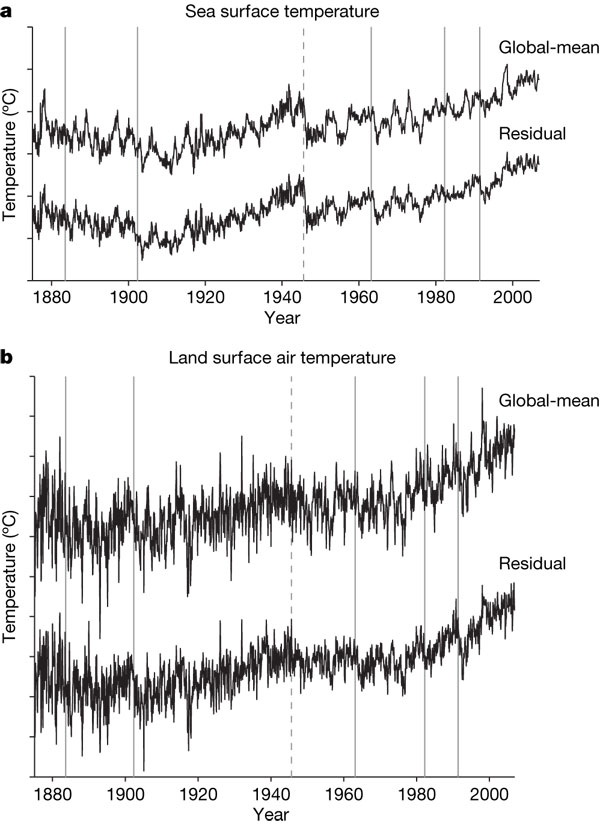by Kieran Healy on May 29, 2008
In a classic discussion of scientists sampling the ground in the Amazon rainforest, Bruno Latour details the process through which physical bits of soil are turned into recorded measurements and data points for comparison and analysis. He remarks,
Stage by stage, we lost locality, particularity, materiality, multiplicity, and continuity, such that, in the end, there was scarcely anything left but a few leaves of paper. … But at each stage we have not only reduced, we have also gained or regained, since, with the same work of representation, we have been able to obtain much greater compatibility, standardization, text, calculation, circulation, and relative universality, such that by the end, inside the field report, we hold not only all of Boa Vista (to which we can return), but also the explanation of its dynamic.
Now, via Andrew Gelman, a fascinating story from Quirin Schiermeier at Nature about the social production of data.

[click to continue…]
by John Q on May 29, 2008
This piece by Edward Lengel in in the Washington Post has a lot to say about something I’ve long regarded as critically important in explaining the strength of the war party in the US: the absence of any real recollection of the Great War of 1914-18, the opening round of the bloody conflict that dominated the history of the 20th century, spawning Communism and Nazism, Hitler’s War and the Cold War, and even, in large measure the continuing war in the Middle East. Of course, the US came late to the war, and its losses (50 000 combat deaths) were comparable to those of Australia, with around 10 per cent of the population. But there is more to it than that.
Lengel (a military historian writing on Memorial Day) makes the striking observation
Americans haven’t forgotten about the doughboys. We just didn’t want to hear about them in the first place.
and continues
“The boys would talk if the questioners would listen,” said one embittered ex-doughboy. “But the questioners do not. They at once interrupt with, ‘It’s all too dreadful,’ or, ‘Doesn’t it seem like a terrible dream?’ or, ‘How can you think of it?’ or, ‘I can’t imagine such things.’ It shuts the boys up.” … The Civil War and World War II seem to lend themselves to good storytelling, as long as one avoids the ugly, depressing bits. They appear to have clear beginnings and endings, with dramatic heroes and villains. They move. World War I, by contrast, with its images of trench warfare and mustard gas, is not so easy to manipulate in a marketable manner. Popular historians consequently avoid it.
It would be charitable to interpret the reluctance of Americans to talk about the horrors of the Great War as evidence of inherent pacifism and perhaps this element was present. As Andy McLennan points out in comments at my blog, the main reaction to WWI was an increase in isolationist sentiment: the problem was Europe, not war itself. After isolationism was discredited (which did much to strengthen the War Party) from a distance it looks like WWI was simply forgotten,and the end state is functionally equivalent.
In any case, in the long run, the absence of this most bloodily futile of wars from historical memory has been a huge boon to the war party. With a historical memory of war dominated by the “Good War” against Hitler and the Axis, it’s unsurprising that Americans have been much more willing than the citizens of other democratic societies to accept war as part of the natural order of things.
[click to continue…]
